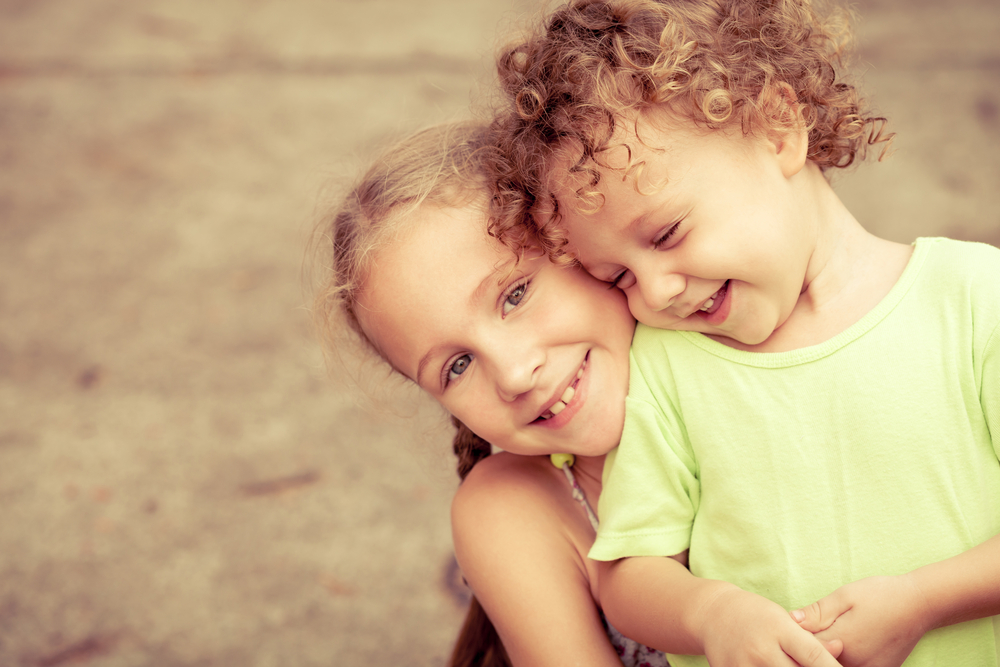A mentor of mine once told me we don’t learn how to be more loving or empathetic. We’re naturally loving from birth.
The difference is small but significant.
We don’t have to strive to feel more or improve ourselves. This perspective is a cultural illness. It affects us when we internalize the industrial ideals of never-ending growth and linear progress.
Instead, we can become more skilled at revealing what’s been there all along.
Growing up, I shut down parts of my heart. There was the pain of broken relationships; the needs that went unmet as a child; stored grief for people and places that I lost connection with; the fear of being hurt or taken advantage of.
Most of us have areas of our hearts we haven’t visited for a long time. We change schools. We move homes. Our parents divorce. A loved one dies. Machines raze our favorite hideout in the woods. Few of us belong to a village that bears witness to the pains of these losses. Few of us have a community that helps us regain the trust we need to feel safe and welcome again.
And so in the absense of a empathic adults or a community to hold us, we abandon these challenged parts of ourselves. We don’t want to go there again. We don’t want to relive the pain or hurt. And so we close these inner catacombs and walk away.
Our work as adult men is to open those chambers again, to remove whatever blocks us from loving the way we were born to do.
[bctt tweet=”Our work as adult men is to remove whatever blocks us from loving the way we were born to do. ” via=”no”]
Learn to cultivate empathy.
That’s far easier said than done, I know. Much of my adult life has been about rediscovering these catacombs and opening them one by one. That’s not always easy. But the older I get, the more I consider it an adventure to rediscover my natural capacity for empathy.
And cultivating empathy is a vital role as a father.
We have so many other roles, of course. But being empathic with our children–and helping them grow their own capacity for empathy–has a huge impact on their development .
When we’re empathic our children can relax. There’s no reason for them to stress or be on high alert. They don’t have to defend themselves, run, hide, or fight. They feel they belong, that they have a home no matter what arises in them. In this environment, they develop the way nature intends them to.
That’s why cultivating our children’s empathy is a fundamental responsability as dads. We’re empathy farmers, to use a phrase by psychologist Robin Grille.
Our task is to create the best conditions we can to grow our children’s ability to relate to people, nature and all sentient beings.
Every now and then we might lose our cool, yell, throw a menacing look or otherwise frighten our child with our power and authority. We soon sense the muteness of disconnection. And most of us regret it afterwards, and wish we’d done it in a different way.
[bctt tweet=”Cultivating empathy is a vital role as a father. ” via=”no”]
When our wounds get in the way.
The hard truth is that sometimes we don’t want our children’s feelings to touch us. We’re too exhausted, on edge, incapacitated or triggered for some reason.
In those moments, empathy hurts us too much. We’d much rather turn away than stay with.
Our child’s behavior sometimes touches on our original hurts, the ones we’ve locked away. Every time our child takes us there, she reminds us of our unresolved pain.
It’s not that we’re insensitive, crude, monstrous or incapable of responding with soft attention and compassionate curiosity. We are all biologically capable of responding with love towards our child or our partner. But sometimes our automatic defensive reactions blocks our hearts.
It’s not that we are mean. We’re wounded.
So instead of facing our child, we evade her. We keep her a good distance from our pressure points. We block out our capacity for empathy and isolate ourselves from our child. And instead of healing ourselves, we pass on our hurts.
Notice how you block your empathy.
When we block our empathic responses, we in effect censor our children’s emotions. To avoid engaging with our child’s feelings, we manipulate, dominate, control, belittle, opress or otherwise block the behavior. And we create a distance in the family.
”Empathy blockers save us the trouble of listening, but they cost us our connection with each other,” says Robin Grille. They frustrate our child, and with time create detachment, distance and mistrust.
These are some examples of empathy blockers from his wonderful book Heart-to-Heart Parenting.
- Downplaying – Oh, don’t cry. I’m sure it’s not that bad! It’s not the end of the world.
- Denial – There is nothing wrong; nothing for you to be upset about. Everything is OK.
- Reasoning – Don’t cry. Can’t you see that the other child didn’t mean to hurt you
- The positive spin – Look on the bright side. Can’t you see, this probably happened for a good reason?
- Cheering up – Don’t worry. Here, let me tell you something funny I heard the other day. Here, have an ice cream. That’ll cheer you up.
- Advising/giving options – Why don’t you try doing this, or that? I think you should just ignore that so-and-so.
- The expectation – You should have known better. Get over it. Don’t let it get to you.
- Put down – Don’t be silly. Don’t be ridiculous.
- Diagnosing/labelling – You are being over-sensitive.
- Distracting/diverting – Hey, have a look at the pretty puppet.
- Stealing the thunder – Now you know how I felt when the same thing happened to me.
Listen with your heart.
If you recognize any of these behaviors, chances are you’re human.
And that means you can learn to remove the blocks by owning your reaction and healing your hurts.
This might mean getting some rest, reaching out to a friend a therapist or a coach for support, or finding some space to decompress.
The practice is continuously to develop your ability to listen with genuine interest in your child’s emotional world.
When you do, your child learns that all her feelings are valid. Anger, fear, sadness, shame or joy are all welcome.
“Listening,” says Grille, “is at the heart of connection, and if we can’t listen well, we cease to be an influence in our children’s lives.”
(See here for Miki’s free ebook for depleted dads: ‘7 Steps to a Lot More Energy As a Dad.’)
[irp posts=”1846″ name=”The Single Most Important Skill to Teach Your Child (by Miki Dedijer)”]
About the Author: Miki Dedijer
 Miki Dedijer supports conscious fathers in managing their emotional health and rooting their children in community. Miki hosts The Lodge for Natural Dads, an online gathering of committed dads of young children. You can now reserve your place as a lodge member. Sign up for news about Miki’s workshops, and receive his blogs and updates through his website, naturaldads.com, or join a growing community of dads on Facebook. Miki also offers ‘7 Steps to a Lot More Energy As a Dad.’ a free ebook for depleted dads.
Miki Dedijer supports conscious fathers in managing their emotional health and rooting their children in community. Miki hosts The Lodge for Natural Dads, an online gathering of committed dads of young children. You can now reserve your place as a lodge member. Sign up for news about Miki’s workshops, and receive his blogs and updates through his website, naturaldads.com, or join a growing community of dads on Facebook. Miki also offers ‘7 Steps to a Lot More Energy As a Dad.’ a free ebook for depleted dads.



applies to our election cycle too… many people who feel secure following the election are using these empathy blockers which prevent conversation, healing, or greater understanding from both “sides.” I think many of the protests are cries for others to really listen, really see the emotional realities that the protesters are facing.
Hey Wendolyn–I love that you connect empathic parenting and emotion blockers with the recent election in the United States.
Our children are watching, sensing, feeling how us adults are in the world, and how we respond to the world. The energy of the election has rippled through many families (even beyond the United States).
How we respond to the other, how we view and approach our differences, teaches our children a lot about empathy, and our willingness to listen, even if it is painful.
I imagine there are a lot of correlations between how we practice empathy at home, and how it shows up in politics and shapes society.
Robin Grille is really clear that reforms in child-rearing directly affects democratic processes, peace and social stability. He calls this parenting for a peaceful world.
Thank you again for making the connection!
Miki
A great piece. It’s so easy to get distracted from the innate aspects of being human. Thank you
Hey Howard–Glad you liked it. Yes, I agree with you, it is easy to get distracted. That is I believe why First Nations Peoples don’t see themselves as raising children, but reminding children of their original nature again and again, their generosity, their gifts and their love. When we live in a culture that allows us to forget that, we are denatured. Warmest, Miki
Applies for mums too ..sure.